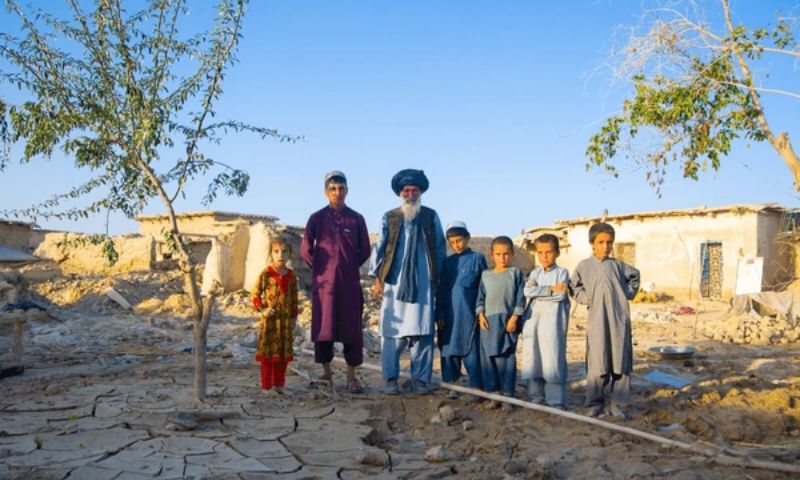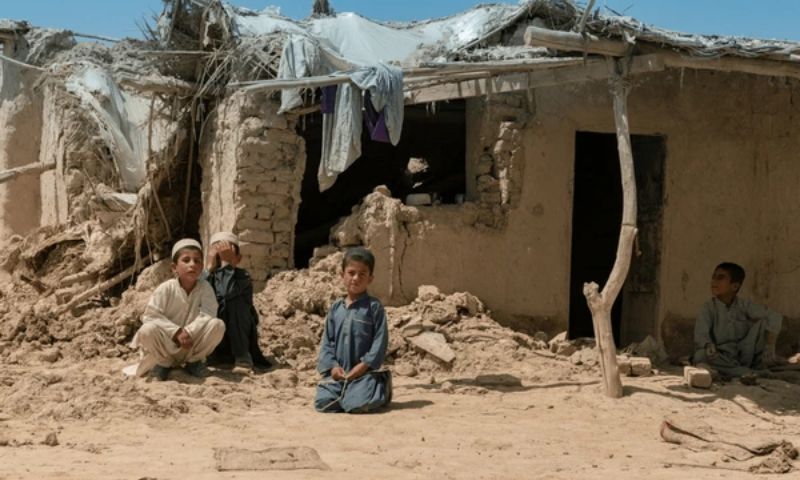Balochistan has long been neglected and marginalized. Despite its vast natural resources, rich cultural heritage, and strategic importance, the province remains underdeveloped and deprived. Balochistan has faced a tumultuous history that has left deep scars, making it essential to prioritize Balochistan’s development and welfare. The deprivation has created a sense of alienation among the Baloch people. It’s high time for the federal government and other federating units to acknowledge the plight of Balochistan and shower it with the affection and attention it deserves.
The province is rich in natural resources, including gas, oil, coal, and minerals. According to a report, the province has nearly $1 trillion worth of mineral deposits. The total GDP of the province is $20 billion – almost 18% of the total GDP of Pakistan. However, Balochistan receives a meager share of the revenue generated from these resources. This economic disparity has led to widespread poverty, unemployment, and a lack of basic infrastructure. It has further created political unrest in the province where the middle class feels exploited.
The economic disparity and political unrest have created a security dilemma in the province. The Baloch separatist movement has contributed to a complex security dilemma situation. This insurgency has resulted in a cycle of violence, and counter-insurgency operations. This vicious cycle started in the 1970s and precipitated after the killing of Nawab Akbar Bugti in 2006. Since then, the common Baloch as well as the landlords have been in a state of active or passive war against the state of Pakistan.
The government of Pakistan has been taking steps to win over the Baloch population by extending development projects like Gwadar and special packages like Aghaz e Haqooq e Balochistan. At the same time, reconciliation processes have been a permanent feature of the federal government to convince the separatist leadership to disarm themselves and come into the mainstream. In 2020, the government established Balochistan Reconciliation Committee which brings together representatives from the government, political parties, and civil society to engage in dialogue and find a peaceful resolution to the conflict.
At the same time, the government has announced an amnesty scheme for those willing to surrender and renounce violence, providing an opportunity for militants to reintegrate into mainstream society. In May 2023, a very infamous character of the Baloch insurgency, Gulzar Imam Shamby was arrested by the law enforcement agencies of Pakistan. The arrest was eulogized as a major breakthrough in the province’s counter-insurgency efforts. The government took an opportunity to present Gulzar Imam as a case for the amnesty scheme. Shamby decided to surrender along with his group after seeing the treatment by the state. This led to a series of surrenders including Sarfraz Ahmed Bungulzai’s announcement to surrender in December 2023.
Gulzar Imam Shamby was a key figure in the BLA’s hierarchy, known for his strategic planning and operational expertise. His arrest has dealt a significant blow to the organization’s leadership, disrupting their command structure and potentially weakening their ability to coordinate attacks. This development has created divisions within the BLA, as rival factions may seek to fill the power vacuum.
Now, Shamby has become a frontline defender of reconciliation in the province. On 23 May 2024, a private university in Balochistan organized a seminar “The Journey towards Peace & Stability in Balochistan” where Gulzar Imam was invited as a chief guest. The surrendered separatists shared their personal stories and reasons for laying down arms, and their vision for a peaceful Balochistan. A large number of civil society members and youth from universities across Balochistan indicate that there is a realization of collective loss of the province which should be recovered by mutual understanding.
As the security landscape of Balochistan continues to evolve, it is essential for the government to build on this success and address the root causes of separatist violence, paving the way for a more peaceful and prosperous future for the people of Balochistan. Balochistan needs more affection and attention from the federal government and other federating units due to its historical neglect. By acknowledging these issues and working towards a more inclusive and equitable development model, we can empower the people of Balochistan and unlock the province’s vast potential. It’s time to shower Balochistan with the affection it deserves and work towards a more prosperous and harmonious Pakistan.

























